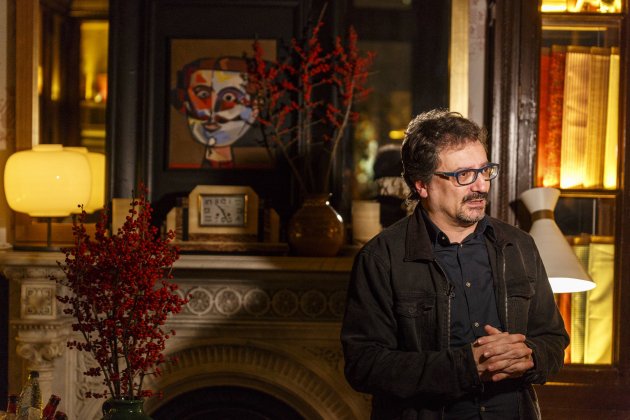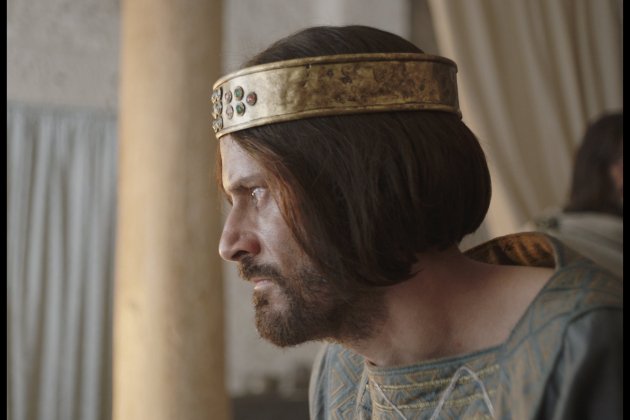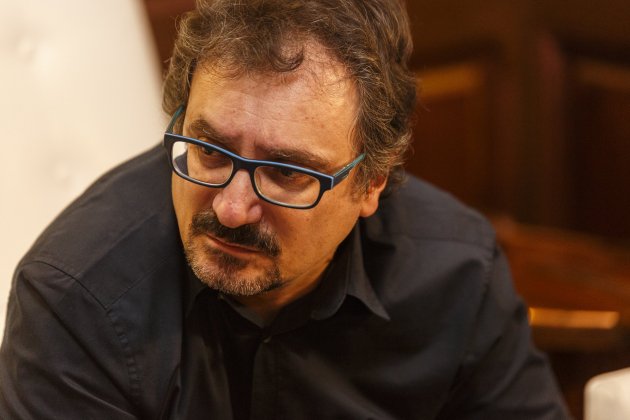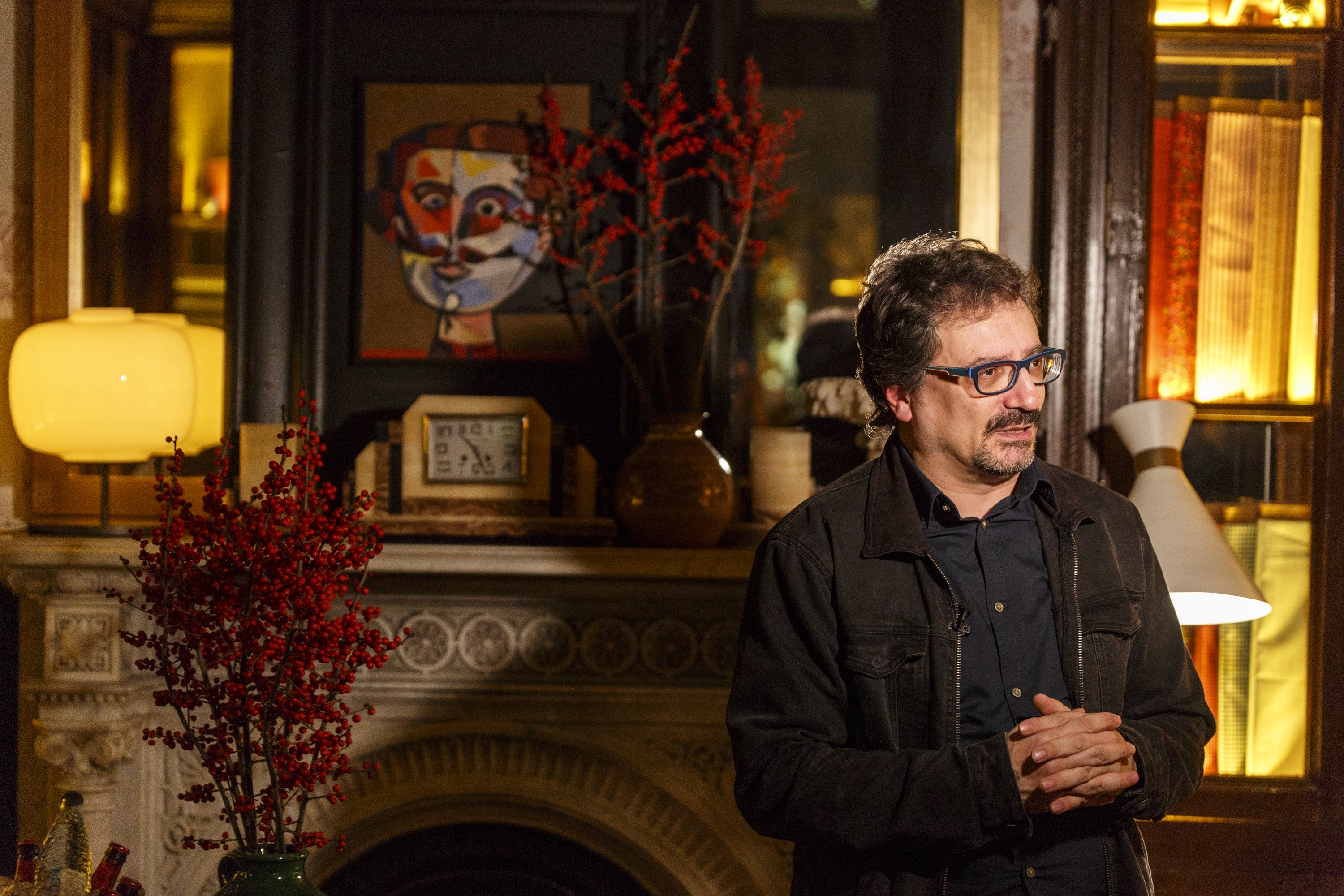Albert Sánchez Piñol, one of the best known contemporary Catalan-language authors, has cowritten, with the director Carles Porta, the new series Comtes ("Counts"). A historical series produced by La Xarxa, over four episodes it narrates the lives and works of the first four counts of the House of Barcelona and the problems they had trying to consolidate their territory as a sovereign entity facing the Frankish empire to its north and despite the Arab threat from the south. The series blends explanations from historians specialising in the period with dramatised scenes. Comtes will be broadcast on local TV stations in Catalonia from 27th to 30th December. At the event presenting the series, Sánchez Piñol spoke to El Nacional.

What is it about these counts that makes them an interesting topic for a series?
It's not so much a question of the counts themselves, as we have little documentation about their lives, but of the conflicts they had to face. They commanded a small territory located between two great powers: the Carolingian empire and the Muslim world of Córdoba. These individuals had to govern facing impossible dilemmas. They didn't have it easy.
It seemed like the historians had more friends in the year 1000 than in the 21st century
Do we have enough documentation about these counts to make an accurate series?
I was surprised by how good our historians were. I was struck by the familiarity with which the experts who helped with the series speak about these counts. It seems they have more friends in the year 1000 than in the 21st century. Despite everything, the gaps are enormous. It's more than 1000 years ago, all of this. We know relatively little about some counts, but we know the essential threads of their governments.
Does the series mix fact and fiction?
No. It's a series based on real events, and we wanted to be very rigorous. What I've done, as a scriptwriter, is to put images to the plots which the historians explain to us. We wanted to be very faithful to the academic narrative, but that's not the only thing. There are voices and voices... We had to choose things which all the experts agreed on.
How do you capture the history of these counts in 30-minute episodes?
I had to be very concise. Some of these counts reigned for 30 years, a long time for that period, but I had to explain everything in four sequences. As such, I just focused on the things that interested me. I can't explain all the details of the life of Wilfred the Hairy, but I do explain the main conflicts, in a few scenes. As a dramatist, for want of a better word, I take a count and I focus on the essential points of his life.
There are kings who, in their lives, have done nothing more than hunt elephants, and there is nothing to write about them

What was special about these four counts?
There are kings who, in their lives, have done nothing more than hunt elephants, and there is nothing to write about them, but about the first four Catalan counts there is a lot to say. The first, Wilfred the Hairy, arrives in Catalonia as a delegate of the government of the king of the Franks, but finds himself in a very dynamic society, which is expanding. And there's a conflict here. The count has to choose between his society and his king, and that is a first class conflict, narratively speaking. He joins in with the expansionist ideas of his people and ends up dying in combat.
Do the other counts also have such exciting conflicts?
The second, Wilfred Borrell, receives power as his inheritance, but has to hold on to it because the Carolingian king claims the territory. It won't be easy for him. The third, Sunyer, is perhaps the most tragic of all them because he's an expansionist in a very small territory. Barcelona had 2,500 inhabitants, and there were only two other urban centres in the Catalan counties. Córdoba [in the south of modern Spain] on the other hand, had around 250,000 inhabitants. There was an incredible difference in strength, but despite everything, Sunyer advances and conquers territories. But the Hungarians, in an incursion, kill Sunyer's first-born son. And the count, who has done everything to pass power on to his son, loses everything. He will end up closing himself away in a monastery. And the fourth, Borrell, who governed alongside his brother Miró for a time, has to face Almanzor [then de facto ruler of Muslim Spain]. He asks everyone for help, the Frankish king, the Pope, the Christian knights, but no one helps him. In the end, Almanzor destroyed Barcelona; contemporaries spoke of the conquest as "the day that Barcelona died", because the Arabs destroyed everything. But Borrell survived, because he wasn't in the city at the moment of the attack.
Does the series focus on the lives of the counts or on the society of their times?
Personally, I would have liked to explore many more aspects of the society at that time, comprised mostly of peasants. If we'd had more resources we'd have made something much more complete, explaining how the ordinary people of the 9th and 10th centuries lived, but in these circumstances we've had to focus on the conflicts of the elites. Narratively speaking, the topic was very attractive, but audiovisual media is very expensive. There's a frustrating lack of resources, and you have to adapt the narrative to the available resources.
These characters didn't even define themselves as Catalans

The counts described in the series, were they the first Catalans?
No. These characters didn't even define themselves as Catalans. In fact, they didn't even have a name to describe themselves. This batch of episodes explains how Catalonia was born; we'd have to do another to explain how the Catalans were born.
What has this experience taught you about the history of Catalonia?
This country hasn't moved forward through victories, but through defeats. Wilfred the Hairy founds the country in the sense that he's the first who transfers power to his descendants. His successor isn't a delegate of the king, instead he creates a dynasty. But he does that because he's dying, because he's been injured in battle. In the fourth episode, the last of this series, Almanzor flattens Barcelona. But this defeat means the definitive break with the power of the North. As help hasn't arrived from the Franks, Borrell breaks with the empire, once and for all.
Your novel Victus deals with the War of the Spanish Succession. Now you've analysed the 9th and 10th centuries. Do you plan to continue writing about the history of Catalonia?
I don't know. Any historical period of this country is interesting for its threads of conflict. For the people who had to live through these situations, it must have been terrible, but for the historian it's a delight. There's not a boring century in the history of Catalonia.
It's amazing that, in 40 years of autonomy, it hasn't occurred to anyone to make a series about the origin of our country
Why make this series now?
What's surprising isn't that it's being made now, but that it hasn't been made before. It's amazing that, in 40 years of autonomy, it hasn't occurred to anyone to make a series about the origin of our country. It's as if France hadn't turned efforts to making a film about Joan of Arc. German television dedicates huge resources to the figure of Charlemagne. Here, the only thing that's been done, in all these years of autonomy, is [80s kids' cartoon] Dragui.
Couldn't a series like Comtes be accused of indoctrination?
There are people who believe that explaining Catalan history to Catalan children is indoctrination. If that's so, I hope for more resources to keep indoctrinating.

